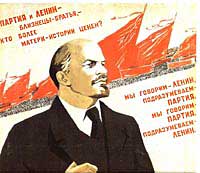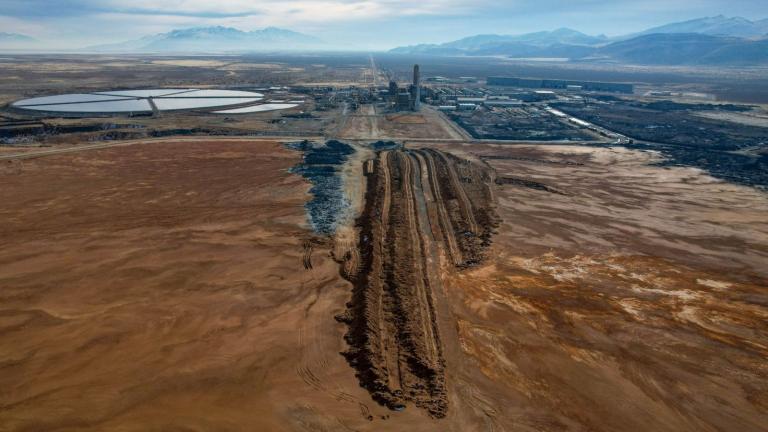America’s market-based solutions to environmental problems tend to look a lot like something you might have seen in an old Soviet propaganda film.

Real Soviet propaganda.
Take emissions trading. Under this system, I, an evil capitalist, sell you, another evil capitalist, the right to spew tons of air pollution, which I can do because I’ve produced less than the legal limit of allowable sulfur dioxide or other filthy emissions. After you pay me for these surplus dirty air credits, you have the right to give emphysema to the children of my maid, who live downwind from you.
Recently, however, I discovered a far more effective and humane market-based system for reducing pollution — developed in a former Soviet client state, of all places. And, believe me, this is no Polish joke.
The Poles, whose entrepreneurial spirit is driving a booming economy a decade after the fall of Communism, have come up with a pollution cleanup system I call “payments and penalties.”

These American smokestacks are begging for a Polish scrub.
Under this system, every industrial facility in the country pays a small portion of its operating costs for use of the nation’s natural resources. In addition, each facility pays fines if it pollutes above the legal limit. All this money goes into a fund administered by the Ministry of the Environment. This fund in turn makes loans to companies that want to install cleaner, greener technologies. If these technologies meet their environmental goals, and if the company makes its payments on time, it only has to pay 50 percent back on the original loan.
Touring Poland with fellow journalists, I was amazed to see the leapfrogging effect this has had on infamous Soviet-era polluted industrial sites like the Nova Huta Steel Works outside Krakow and the 600-acre Palavay chemical plant.
While much of Nova Huta had to be shut down because of its inefficiency and poisonous impacts, part of it now contains a state-of-the-art cold steel press plant, bought from Italy with one of these environmental loans.

Cold, hard steel.
The Palavay plant used its loans to design and build smokestack scrubbers that it is now selling to Western European factories, and also to convert from chlorine production for paper bleaching (which generates dioxin as a byproduct) to a more environmentally benign hydrogen-peroxide system.
A recent International Monetary Fund report found that Poland’s payment-and-penalty system is one of the most creative anti-pollution initiatives in the world. The Poles, being diplomatic, point out that the U.S. is still the leader in terms of creating new green technologies. It’s just that we haven’t been very creative in developing market incentives to promote them.
Still, the Poles are not about to make fun of us. Well, one of my Polish journalist colleagues did tell me the American joke about the Pole who comes to New York … but, er, maybe that one’s not appropriate for a family e-zine.



